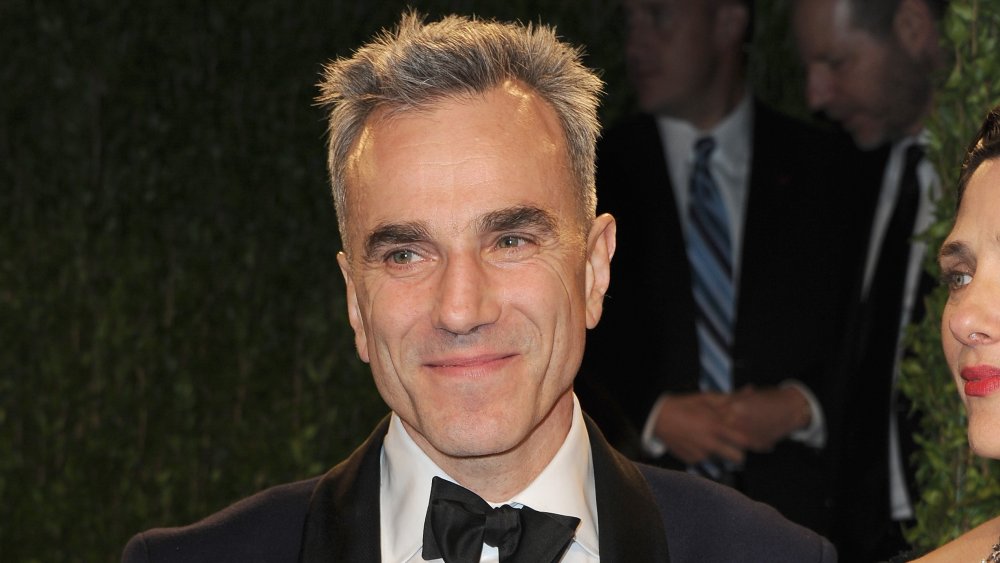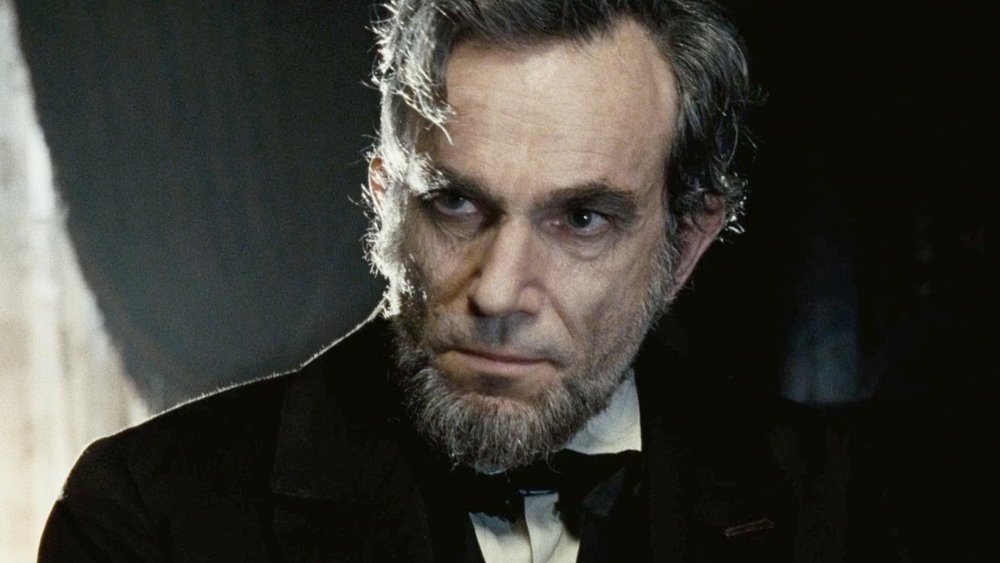The Real Reason Daniel Day-Lewis Doesn't Do Sequels
Over the past couple decades, sequels have taken over Hollywood as the widely accepted norm for most big-screen productions. If it feels as though major franchises like Star Wars and the Marvel Cinematic Universe are pumping out new additions left and right, it's because they are. As a result, standalone projects are few and far between. Given their infrequency, the vast majority of actors working today have had to reprise at least one of their defining roles, both continuing stories that appeared to have already concluded as well a following up on the cliffhangers intentionally left behind. That's what makes Daniel Day-Lewis such a unique case: unflagging integrity.
Sir Daniel Day-Lewis — best recognized for his work on films like 2007's There Will Be Blood and 2012's presidential biopic Lincoln – never plays the same character twice. Widely considered one of, if not the greatest big-screen actor of his time and certainly one of the best in history, Day-Lewis capped off his stellar career with 2017's Phantom Thread, turning out an Oscar-worthy performance per usual. He has yet to go back on his word after announcing his retirement from acting, which means the chance of seeing him play the Butcher in Gangs of New York 2 just dropped from minuscule to non-existent.
Here's why Day-Lewis went his entire storied career without playing the same song twice.
Daniel Day-Lewis values his craft above continuations
To best understand why Daniel Day-Lewis wasn't one for sequels, you have to take a look at the kind of films he commonly signed on for. He didn't gain a reputation as one of the finest actors to ever hit the silver screen by starring in D-list action movies or corny romantic comedies; he got involved with productions that offered him a chance to push his limits as a committed method actor. In an interview with W Magazine back in 2017, Day-Lewis touched on why he retired, but also shed some light on what drew him to acting in the first place.
"I dread to use the overused word 'artist,' but there's something of the responsibility of the artist that hung over me. I need to believe in the value of what I'm doing. The work can seem vital. Irresistible, even. And if an audience believes it, that should be good enough for me," the former actor said, thus citing the importance of his work to himself and the nature of the narratives he selected for himself. If he doesn't believe in it, and he can't delve deep into the nuances of his character, how is the viewer supposed to buy into his performance?
Movies like The Last of the Mohicans or The Boxer weren't cut out for sequels and are meant to stand on their own, since they exist primarily as pieces of media art. They were created to tell a complex story, sending the cast outside of their creative comfort zone and offering audiences something totally unique. That's what he looked for from project to project, and stretching a story thin for no real reason through follow-ups would have dampened that experience. Treading the same ground twice wasn't Daniel Day-Lewis' cup of tea, and it's clear he valued quality over quantity in his work, taking sequels completely out of the equation.

